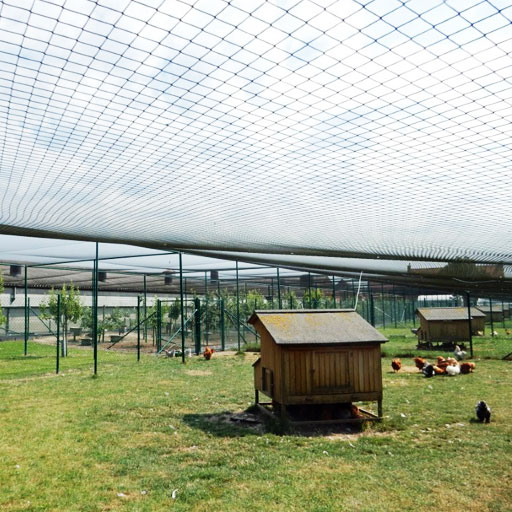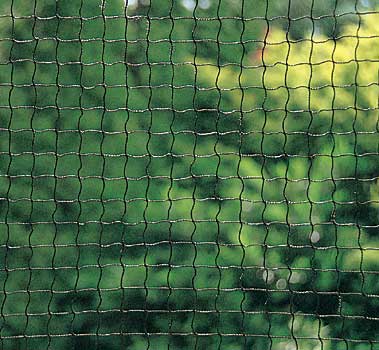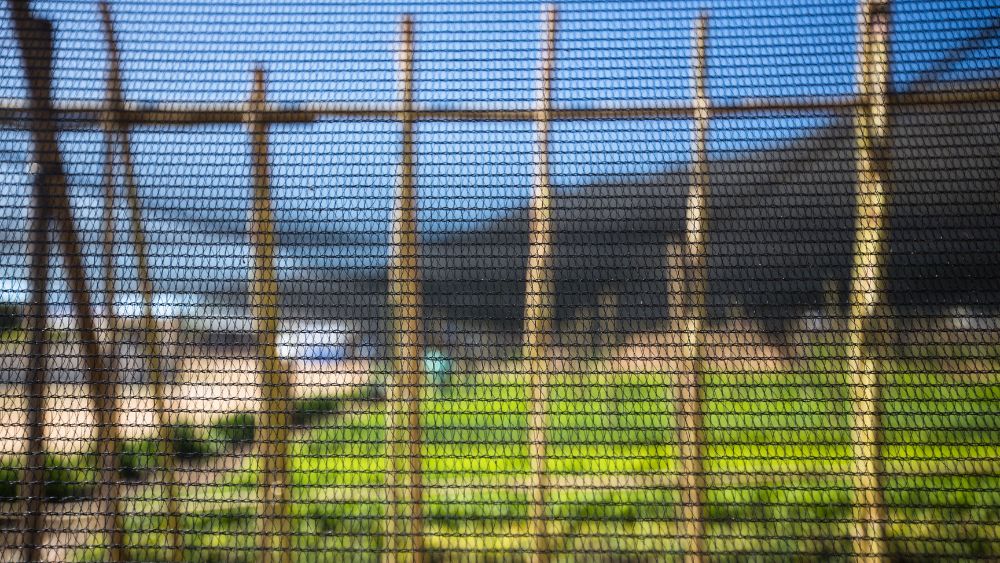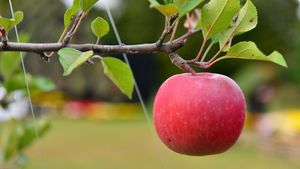The Benefits of Bird Nets for Fruit Trees
If you're an eager gardener, you know that birds can be a real nuisance. They love to peck at ripe fruits and vegetables, and they can do a lot of damage in a short amount of time!
One way to protect your plants is to use bird nets. In this blog post, we'll discuss the benefits of using bird nets for fruit trees.
Benefits Of Using Anti-Bird Netting
One of the main benefits of using bird nets for fruit trees is that it protects your fruits and vegetables from being eaten by birds. Birds can do a lot of damage to a crop in a short amount of time, and their droppings can also spread diseases to your plants.
By using bird nets, you can keep your fruits and vegetables safe from hungry birds.
Another benefit of using bird nets is that they can help increase your crop yield. When birds peck at fruits and vegetables, they often damage them beyond repair.
When birds damage your crops, it means they can't be sold or eaten. By using bird nets, you can reduce the number of damaged fruits and vegetables, which means more money in your pocket.

What Fruit Trees Can Bird Netting Be Used For?
Here at Huck, we make custom bird netting in a range of sizes. It means Huck bird netting can be used across a range of fruit trees, including:
-
Apple
-
Pear
-
Plum
-
Peach
-
Fig
-
Cherry
-
Nectarine
-
Apricot
-
Mulberry
-
Lemon
How To Install Bird Netting
Attaching and securing bird netting to your fruit trees could not be easier!
The tools you will need to start are:
-
Huck bird netting
-
Poles
-
Ties or ropes
-
Stakes (optional)
To secure the bird netting to the fruit tree, follow these steps:
Step One
Place the pole at the base of the tree.
You should use a pole that is slightly taller than the tree for the best results.
Step Two
Unroll the bird netting and drape it over the tree.
Make sure that the netting is not too tight, as this could damage the tree.
Step Three
Use ties or ropes to secure the bird netting to the pole. You can also use stakes to secure the bird netting to the ground if you wish.
And that's it! Your fruit trees are now protected from birds.

Bird Netting Tips
Before choosing the type of bird netting, size and installation - here are a few tips to ensure you get the best out of your nets!
1. Inspect bird netting prior to use for any tears or holes that may need to be repaired.
2. Secure the bird netting to the frame of the fruit tree with sturdy twine or wire.
3. Make sure there are no gaps or openings in the bird netting where birds could potentially enter.
4. Check the bird netting regularly for any rips or tears and repair where necessary.
5. Remove any debris or leaves that may accumulate on top of the bird netting, as this can hinder its effectiveness.
6. Keep an eye out for any birds that may have become trapped in the bird netting and release them if necessary.
7. Dispose of bird netting properly when it is no longer usable.
Why Netting Is An Easy Bird Control Solution
Now that you know all about the benefits of using bird nets for fruit trees, you may be wondering why netting is such an easy bird control solution.
There are several reasons why netting is an effective bird control method:
1. It's a physical barrier that birds cannot penetrate.
2. It's a humane way to control birds as it does not harm them.
3. It's a cost-effective way to protect your fruit trees from birds.
4. It's easy to install and use.
5. It's durable and long-lasting.
Bird netting is a great option if you're looking for an effective way to control birds around your fruit trees. It's easy to use, and it's very effective at keeping birds away from your crops.
Alternative Bird Netting Uses
Fruit tree protection netting is not just used to protect your fruit - it can also be used for a variety of other purposes, including:
1. Covering ponds or lakes to keep birds away from the water.
2. Protecting seedlings and young plants from birds.
3. Creating a physical barrier around an area to keep birds out.
4. Keeping birds away from commercial buildings or warehouses.
5. Preventing birds from roosting in trees or on buildings.
No matter what your needs are, bird netting is a versatile and effective way to make sure that birds stay away.

Final Thoughts: Why Use A Bird Netting On Your Fruit Trees
If you're looking for an effective way to protect your plants from birds, then you should consider using bird nets. Bird nets offer many benefits, including protecting your fruits and vegetables from being eaten and increasing your crop yield.
If you're worried about the cost of bird netting, don't be! Bird nets are a very cost-effective way to protect your plants and will last for many years.
So, what are you waiting for? Get yourself some Huck bird netting and start protecting your fruit trees today!
FAQs
Can I use bird netting on my fruit bushes?
Yes, you can use bird netting on fruit bushes. You will need to ensure that the netting is secured tightly so birds cannot get under it and reach the fruit.
How do you keep birds from getting caught in fruit netting?
The best way to keep birds from getting caught in fruit netting is to make sure that there are no gaps or openings in the netting. You should also regularly check the netting for any rips or tears and repair it as necessary.
If a bird does get trapped in the netting, you can release it by cutting a hole in the netting and letting the bird out.
How long does bird netting last?
Bird netting is made from durable material, so it can last for many years. However, you should regularly check the netting for any rips or tears and repair it as necessary.
What is the safest bird netting?
The safest bird netting is made from durable material that will not easily rip or tear. You should also make sure that there are no gaps or openings in the netting where birds could potentially get trapped.
If you follow these tips, you can rest assured that your bird netting will be safe and effective at keeping birds away from your fruit trees.

